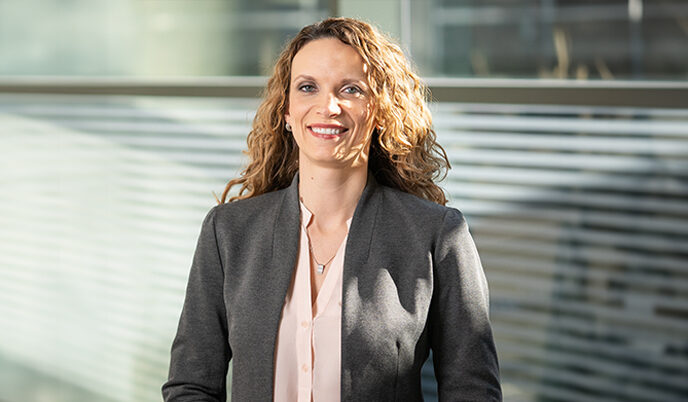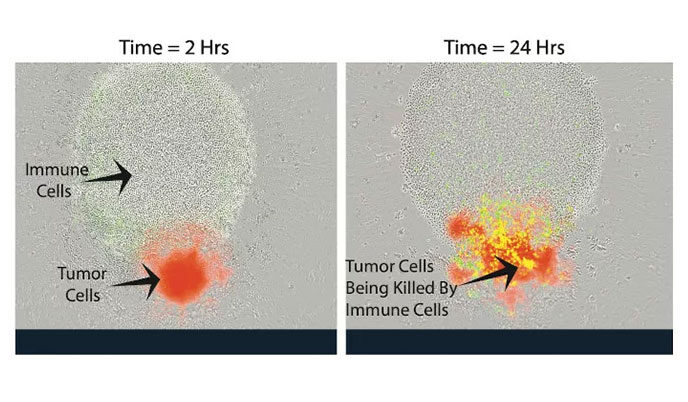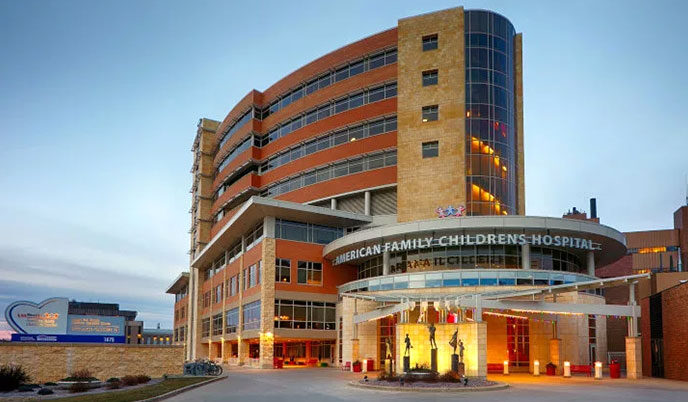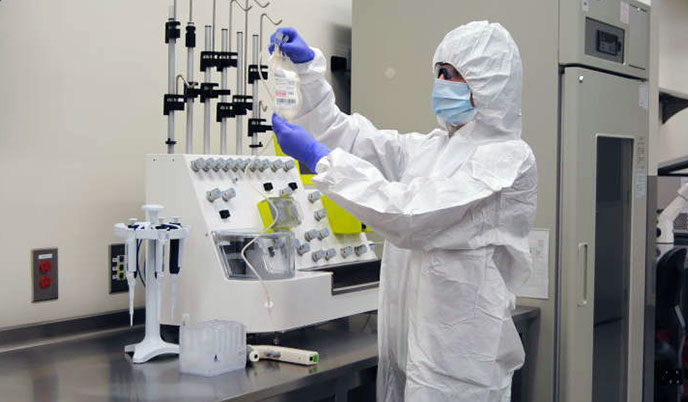
Nataliya Uboha named faculty leader of Cancer Therapy Discovery and Development (CTD2) at UW Carbone Cancer Center
Nataliya Uboha, MD, PhD, has been selected to lead the Cancer Therapy Discovery and Development (CTD2) program at the University of Wisconsin Carbone Cancer Center.

Study finds analyzing DNA in urine could help detect cancer
A study published this week in Science Translational Medicine describes how urinalysis could potentially be used to detect some forms of cancer.

Jamey Weichert, Zachary Morris leading a team to develop new way to help immune system fight back against cancer
Scientists at the University of Wisconsin School of Medicine and Public Health are breaking new ground to make cancer cells more susceptible to attack by the body’s own immune system.

First-in-humans clinical trial to treat children with relapsed neuroblastoma opens at American Family Children’s Hospital
A first-in-humans clinical trial for children with relapsed or refractory neuroblastoma has opened at American Family Children’s Hospital (AFCH) and is being conducted by researchers at University of Wisconsin School of Medicine and Public Health. Neuroblastoma is one of the most common solid tumors in children. Patients who are classified as “high-risk” (about 40 percent of those diagnosed) have less than a 50 percent survival rate.

UW Carbone Cancer Center receives FDA clearance to test new regenerative medicine therapy for radiotherapy-induced dry mouth
The University of Wisconsin Carbone Cancer Center has the go-ahead to start clinical trials on a first-in-human cell therapy to treat a common side effect of radiation therapy.

Stem cells could help cancer patients fight dangerous infections
Scientists at the University of Wisconsin–Madison have developed a more efficient way to grow the white blood cells, which serve as front-line defenders against bacterial infections but are often depleted as a potentially deadly side effect of cancer treatment.

Access to Medicare increases cancer detection, reduces cancer mortality rate
Access to Medicare significantly impacts detection of certain cancers and life expectancy following cancer diagnosis, according to a new study from the UW School of Medicine and Public Health that was recently published online in the Journal of Policy Analysis and Management.

UW–Madison inventors aim to replace old-style breast-surgery marker
Three University of Wisconsin–Madison innovators have invented a better way for surgeons to locate tumors during lumpectomies for breast cancer.

UW Carbone Cancer Center physicians: All cancer patients should be screened for Hepatitis C
All cancer patients should be screened for exposure to the Hepatitis C virus because cancer treatment can make an active viral infection worse, according to a statement published this month in the Journal of Oncology Practice.

Biostatistics and medical informatics tapped for $11.8 million national coordinating center
A University of Wisconsin-Madison professor and his team have been chosen to lead the nation’s coordinating center for the National Cancer Institute (NCI) Cancer Prevention Clinical Trials Network (CP-CTNet).

Cancer research conference focuses on targeted radionuclide therapy
University of Wisconsin-Madison is hosting a national conference on targeted radionuclide therapy (TRT), a promising new technology that combines cytotoxic radioisotopes with molecularly targeted agents to produce an anti-cancer therapy capable of treating local or systemic disease.

Simultaneous infection by two viruses the key to studying rare lymphoma
New research has found that a rare blood cancer can be simulated in the lab only by simultaneously infecting white blood cells with two viruses typically found in the tumors.